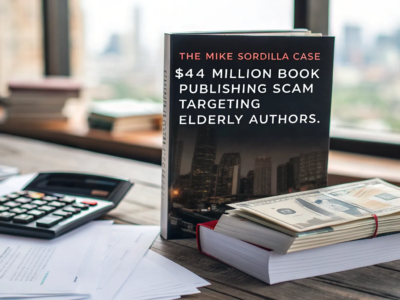
Profit from Publishing: Earn Book Royalties Today
Book royalties are the payments that authors receive for the use of their work. When a book is published, the author typically enters into an agreement with a publisher, who then pays the author a percentage of the book’s sales. Royalties are calculated based on a percentage of the book’s retail price or the net receipts from sales.
There are different types of royalties that authors can earn. The most common type is the “advance against royalties,” where the author receives an upfront payment before the book is published. Once the book is released, the author starts earning royalties once the advance has been earned back through book sales. Other types of royalties include subsidiary rights royalties, which are earned from the sale of rights such as foreign language translations or film adaptations, and ebook royalties, which are earned from digital sales.
Key Takeaways
- Understanding book royalties is crucial for maximizing your earnings potential as an author.
- Self-publishing offers many benefits, including higher royalties and more control over your work.
- Choosing the right publishing platform is important for reaching your target audience and maximizing sales.
- Writing a best-selling book requires careful planning and execution to boost your royalties.
- Effective marketing strategies are essential for increasing your book sales and earning more royalties.
The Benefits of Self-Publishing: Maximizing Your Earnings Potential
Self-publishing has become increasingly popular in recent years, and one of the main benefits is higher royalty rates. Traditional publishers typically offer authors royalty rates ranging from 10% to 15% of the book’s retail price, whereas self-published authors can earn up to 70% of their book’s retail price through platforms like Amazon Kindle Direct Publishing.
Another advantage of self-publishing is that authors have complete control over the publishing process. They can choose their own cover design, formatting, and pricing. This allows authors to experiment with different strategies to maximize their earnings potential.
Self-publishing also offers flexibility in pricing and promotions. Authors can choose to offer their books at a lower price point to attract more readers or run limited-time promotions to boost sales. They can also take advantage of tools like Amazon’s Kindle Countdown Deals or Kindle Unlimited to reach a wider audience.
How to Choose the Right Publishing Platform for Your Book
When deciding between traditional publishing and self-publishing, it’s important to consider the pros and cons of each option. Traditional publishing offers the advantage of having a team of professionals handle the editing, design, and marketing of your book. However, it can be difficult to get a book deal with a traditional publisher, and authors often have less control over the final product.
On the other hand, self-publishing platforms like Amazon Kindle Direct Publishing and Smashwords offer authors more control and higher royalty rates. These platforms provide easy-to-use tools for formatting and publishing your book, as well as access to a large audience of readers. However, authors are responsible for all aspects of the publishing process, including editing, cover design, and marketing.
When choosing a publishing platform, it’s important to consider factors such as ease of use, distribution options, and royalty rates. It’s also worth researching the platform’s reputation and reading reviews from other authors who have used the platform.
Tips for Writing a Best-Selling Book: Boosting Your Royalties
| Tip | Description |
|---|---|
| Know Your Audience | Understand who your target readers are and what they want to read. |
| Create a Compelling Plot | Develop a storyline that captures readers’ attention and keeps them engaged. |
| Develop Memorable Characters | Create characters that readers can relate to and care about. |
| Write in a Clear and Concise Style | Use simple language and avoid unnecessary words to make your writing easy to understand. |
| Edit and Revise Your Work | Take the time to review and refine your writing to ensure it is polished and error-free. |
| Market Your Book Effectively | Promote your book through social media, book signings, and other marketing channels to reach a wider audience. |
| Engage with Your Readers | Respond to reader feedback and build relationships with your audience to create a loyal fan base. |
| Stay Persistent and Patient | Writing a best-selling book takes time and effort, so stay committed and don’t give up. |
Writing a best-selling book is not an easy task, but there are several strategies that can help boost your royalties. First and foremost, it’s important to understand your target audience. Research what books are popular in your genre and study the preferences of your potential readers. This will help you craft a story that resonates with your audience and increases the chances of success.
Crafting a compelling story is essential for capturing readers’ attention and keeping them engaged. Focus on creating well-developed characters, an intriguing plot, and strong pacing. Consider incorporating market trends and reader preferences into your story to increase its appeal.
It’s also important to invest time in editing and proofreading your manuscript to ensure it is polished and error-free. Consider hiring a professional editor or joining a critique group to get feedback on your work.
Marketing Your Book: Strategies for Increasing Your Sales
Marketing plays a crucial role in increasing book sales and royalties. Building an author platform is essential for connecting with readers and promoting your work. This can include creating a website or blog, establishing a presence on social media, and building an email list.
Utilizing social media and email marketing can help you reach a wider audience and engage with your readers. Share updates about your book, offer exclusive content or discounts, and interact with your followers to build a loyal fan base.
Collaborating with influencers and book bloggers can also help increase your book’s visibility. Reach out to popular bloggers in your genre and offer them a free copy of your book in exchange for an honest review or feature on their blog. This can help generate buzz and attract new readers.
The Importance of Book Cover Design: Attracting Readers and Boosting Sales
A successful book cover is essential for attracting readers and boosting sales. It’s the first thing potential readers see, so it needs to grab their attention and convey the genre and tone of the book.
Elements of a successful book cover include a strong title that is easy to read, eye-catching imagery or illustrations, and a design that is consistent with the genre. It’s important to research the covers of successful books in your genre to get an idea of what works.
Hiring a professional designer is highly recommended to ensure you have a high-quality cover that stands out. A professional designer will have the skills and experience to create a cover that meets industry standards and appeals to your target audience.
A/B testing is also important for optimizing your cover design. Create multiple versions of your cover and test them with different audiences to see which one performs best. This can help you make data-driven decisions and increase your chances of success.
Understanding the Royalty Structure: How Much You Can Earn
The royalty rates for different publishing platforms vary, so it’s important to understand how much you can potentially earn from each platform. Traditional publishers typically offer royalty rates ranging from 10% to 15% of the book’s retail price. Self-publishing platforms like Amazon Kindle Direct Publishing offer royalty rates of up to 70% of the book’s retail price.
Factors that can affect your royalty earnings include the price of your book, the format (ebook, paperback, audiobook), and the distribution channels you choose. It’s important to consider these factors when setting the price of your book and deciding which formats and distribution channels to use.
Calculating your potential earnings can be done by multiplying the royalty rate by the book’s retail price and the number of copies sold. It’s important to keep in mind that royalties are typically paid on a quarterly basis, so it may take some time to see the full earnings from your book.
Maximizing Your Book’s Exposure: Leveraging Social Media and Other Channels
To maximize your book’s exposure and increase sales, it’s important to create a book launch plan. This can include strategies such as offering pre-orders, running promotions, and reaching out to influencers or book bloggers for reviews or features.
Utilizing Amazon’s marketing tools can also help increase your book’s visibility. Amazon offers tools such as Kindle Countdown Deals, Kindle Unlimited, and Amazon Advertising that can help you reach a wider audience and boost sales.
Exploring other distribution channels is also important for maximizing exposure. Consider making your book available through other online retailers such as Barnes & Noble or Apple Books, as well as exploring options for print-on-demand services or audiobook production.
How to Negotiate a Book Deal: Getting the Best Royalties Possible
If you decide to pursue traditional publishing, it’s important to understand the publishing contract and negotiate the best possible terms. This includes negotiating royalty rates and advances, as well as protecting your intellectual property rights.
When negotiating royalty rates, it’s important to research industry standards and compare offers from different publishers. Consider factors such as the publisher’s reputation, marketing and distribution capabilities, and the potential for subsidiary rights sales.
Advances are upfront payments that authors receive before the book is published. Negotiating a higher advance can provide financial security and allow you to focus on writing your book. It’s important to consider factors such as the publisher’s budget, the book’s market potential, and your track record as an author when negotiating advances.
Protecting your intellectual property rights is crucial when signing a publishing contract. Make sure you understand the terms of the contract and seek legal advice if necessary. Consider negotiating for rights such as foreign language translations, film adaptations, or audiobook production.
The Future of Publishing: Trends and Opportunities for Authors to Earn More Royalties
The publishing industry is constantly evolving, and it’s important for authors to stay informed about current trends and opportunities to maximize their royalties. Some current trends include the rise of audiobooks, the growth of subscription services like Kindle Unlimited, and the increasing popularity of self-publishing.
Emerging technologies such as virtual reality and artificial intelligence are also expected to have an impact on the publishing industry in the future. Authors who embrace these technologies and adapt their storytelling techniques can take advantage of new opportunities to reach readers and increase their royalties.
Opportunities for authors to earn more royalties in the future include exploring new distribution channels, leveraging social media and online marketing strategies, and embracing self-publishing platforms. It’s important for authors to stay open-minded, adapt to changes in the industry, and continue to learn and grow as professionals.
Understanding book royalties is essential for authors who want to maximize their earnings potential. Self-publishing offers higher royalty rates, control over the publishing process, and flexibility in pricing and promotions. When choosing a publishing platform, it’s important to consider factors such as ease of use, distribution options, and royalty rates.
Writing a best-selling book requires understanding your target audience, crafting a compelling story, and incorporating market trends and reader preferences. Marketing strategies such as building an author platform, utilizing social media and email marketing, and collaborating with influencers and book bloggers can help increase sales.
The importance of book cover design should not be underestimated, as it plays a crucial role in attracting readers and boosting sales. Understanding the royalty structure and calculating your potential earnings is important for setting realistic expectations.
Maximizing your book’s exposure can be achieved through strategies such as creating a book launch plan, utilizing Amazon’s marketing tools, and exploring other distribution channels. When negotiating a book deal, it’s important to understand the publishing contract, negotiate royalty rates and advances, and protect your intellectual property rights.
The future of publishing offers opportunities for authors to earn more royalties through emerging technologies, new distribution channels, and self-publishing platforms. It’s important for authors to stay informed about current trends and adapt to changes in the industry to maximize their earnings potential.
FAQs
What are royalties in book publishing?
Royalties are a percentage of the revenue earned from the sale of a book that is paid to the author or the copyright holder.
How do I earn royalties from book publishing?
To earn royalties from book publishing, you need to write a book and have it published by a publisher. You will then receive a percentage of the revenue earned from the sale of the book.
What is the typical royalty rate for book publishing?
The typical royalty rate for book publishing varies depending on the publisher and the type of book. Generally, authors can expect to receive between 5% and 15% of the revenue earned from the sale of their book.
Do I need to have a literary agent to earn royalties from book publishing?
No, you do not need to have a literary agent to earn royalties from book publishing. However, having a literary agent can help you negotiate a better royalty rate and secure a publishing deal.
How often are royalties paid in book publishing?
Royalties are typically paid on a quarterly basis, although some publishers may pay royalties on a semi-annual or annual basis.
What happens if my book doesn’t sell well?
If your book doesn’t sell well, you may not earn as much in royalties as you had hoped. However, you will still receive a percentage of the revenue earned from the sale of your book, even if it doesn’t sell well.
Can I earn royalties from self-publishing?
Yes, you can earn royalties from self-publishing. When you self-publish a book, you are essentially acting as your own publisher and will receive a percentage of the revenue earned from the sale of your book.

















